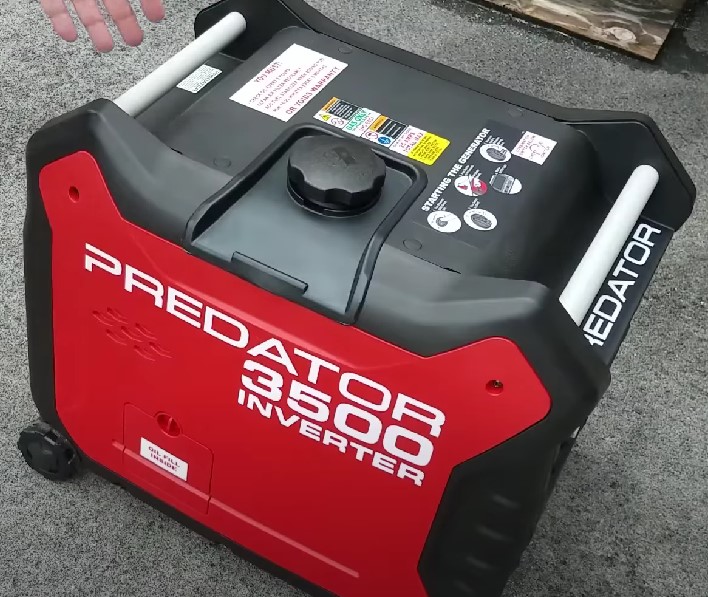The generator won’t start after it has run out of gas; this one is one of the most common scenarios for portable generator owners. Understanding the reasons behind this issue and knowing how to troubleshoot can be a lifesaver, especially during emergencies.
In this article, we will cover everything about generators that won’t start after running out of gas. without further ado, let’s get started.
Reasons a Generator Won’t Start After Running Out of Gas
When your generator runs out of gas, it can introduce air into the fuel system, leading to various issues. Potential damage to the fuel pump or carburetor can also occur due to a lack of lubrication. Over time, these issues can compound, leading to more serious problems.
Common Problems and Solutions
Air in the Fuel Lines
Air can enter the fuel system when a generator runs out of gas. To fix this issue, you need to ‘bleed’ or remove the air from the system. This process usually involves opening a valve or loosening a fuel line while the generator is being cranked until fuel replaces the air.
Clogged Carburetor
A carburetor, which mixes air and fuel for combustion, can become clogged if the generator runs out of gas. Cleaning a carburetor involves removing it from the generator and using a carburetor cleaner. Make sure to remove all the parts and clean them thoroughly to ensure optimal performance.
Faulty Spark Plug
A spark plug can be affected if a generator runs out of gas. You can check a spark plug’s condition by looking at its color and appearance. If it’s oily, or sooty, or its electrode is burnt or damaged, it needs to be replaced.
Damaged Fuel Pump
A lack of gas can lead to a damaged fuel pump due to inadequate lubrication. If your generator still won’t start after troubleshooting other areas, consider checking the fuel pump. If it’s damaged, you may need to replace it.
Preventative Measures
To prevent these issues, always ensure your generator has enough gas before use. Regular maintenance, including checking and cleaning the carburetor and spark plugs, is also vital. Additionally, always keep spare gasoline and essential parts on hand in case of an emergency.
When to Consult a Professional
If your generator still won’t start after performing the troubleshooting steps, it may be time to consult a professional. Look out for signs of more serious problems, like smoke, strange noises, or a complete lack of power even after rectifying the common issues. When choosing a repair service, consider their reputation, experience, and costs.

predator generator 3500 won’t start after running out of gas
Running a generator dry can sometimes introduce complications like air in the fuel system or issues with the carburetor, spark plug, or fuel pump. If your Predator 3500 generator won’t start after running out of gas, you can follow the same basic troubleshooting steps as you would with any other generator.
- Refill the Fuel Tank: Refill the generator with fresh, appropriate fuel. Make sure the generator is on a level surface when checking the fuel level.
- Check for Air in the Fuel Lines: Running out of fuel can allow air into the fuel lines, causing a blockage. You may need to bleed the fuel system to get rid of any air. Refer to your Predator 3500’s user manual for specific instructions on how to do this.
- Inspect the Carburetor: If the generator ran out of fuel, it might have drawn sediment from the tank into the carburetor, blocking it. Remove the carburetor and clean it carefully with a carburetor cleaner.
- Inspect the Spark Plug: Check the spark plug for any signs of damage or wear. If it’s oily, or sooty, or its electrode is burnt or damaged, replace it with a new one.
- Check the Fuel Pump: The fuel pump can be damaged if the generator runs out of gas, as it can lose its necessary lubrication. Inspect it for any signs of damage, and replace it if needed.
- Check the Oil Level: Some generators have a low oil shutoff feature. Check the oil level to make sure it’s adequate. If the oil is old or dirty, consider changing it.
After going through these steps, try starting your generator again. If it still won’t start, it might be a more complex issue that requires professional attention.
Related:
- Can Natural Gas Generator Be Converted to Propane?
- Best Cover For Predator Generator ( All Models)
- What Can 1400 Watt Generator Run?
- How to Fix Low Oil Pressure in a Generator?
Conclusion
While dealing with a generator that won’t start after running out of gas can be frustrating, understanding the potential problems and their solutions can make the process easier. Remember, proper generator usage and regular maintenance are key to preventing such issues. If you’re unable to resolve the problem yourself, don’t hesitate to call a professional for help. Your generator is a valuable asset – treat it with the care it deserves.
Recent Posts
Yes, synthetic oil can generally be used in generators. It offers superior lubrication, improved resistance to temperature variations, and longevity compared to conventional oil, which can enhance...
In today's digital age, our dependency on computers and other electronic devices is undeniable. But what happens when a power outage occurs? This is where generators come in. However, is it safe to...
